
The Fourth Revolution: The Global Race to Reinvent the State
by
John Micklethwait
and
Adrian Wooldridge
Published 14 May 2014
We focus on the British manifestation of this revolution partly because its better-known twins have more distractions—the French Revolution degenerated into a bloodbath while the American one had the peculiar virtue of having a continent-sized country to work on—and partly because it is the Victorian one that seems to be most relevant today. English liberals took a decrepit old system and reformed it from within by stressing efficiency and freedom. They “stole” China’s idea of a professional civil service selected by exam, attacked cronyism, opened up markets, and restricted the state’s rights to subvert liberty. The “night-watchman state,” advanced by the likes of John Stuart Mill, was both smaller and more competent. Even though the size of the British population rose by nearly 50 percent from 1816 to 1846 and the Victorians improved plenty of services (including setting up the first modern police force), the state’s tax revenues fell from £80 million to £60 million.3 And later reformers like William Gladstone kept on looking for ways to “save candle-ends and cheese-parings in the cause of the country.”
…
Mill’s overriding political concern was not how to create order out of chaos but how to ensure that the beneficiaries of order could develop their abilities to the maximum and thereby achieve happiness. His focus was on removing barriers to self-fulfillment—and thereby increasing what Isaiah Berlin would later dub “negative liberty.” But where did that leave Leviathan? To begin with, Mill thought the answer was easy: a minimal, noninterfering state—the “night-watchman state” (a phrase that he never used but that sums up his attitude). But as he grew older, he began to have second thoughts. Wasn’t a state that denied a poor man a decent education also restraining his potential happiness and freedom? Mill epitomized a debate that was at the heart of Western liberalism: Raised as a pure small-government liberal, he gradually accepted the case for a bigger state.
…
Green mixed Hegelian metaphysics with Balliol high-mindedness and served the interventionist brew to a succession of bright young men such as Herbert Asquith, the future Liberal prime minister, and R. H. Tawney, one of the most influential intellectuals of the 1920s and 1930s. Suddenly the night-watchman state was the relic of an earlier age, and the Prussian Reich the measure of all things modern. Historians like to explain this change primarily in terms of the rise of compassion: The British elite woke up to the “other Britain” of filthy slums and starving children and passed legislation to provide the poor with welfare and to keep children out of chimneys.
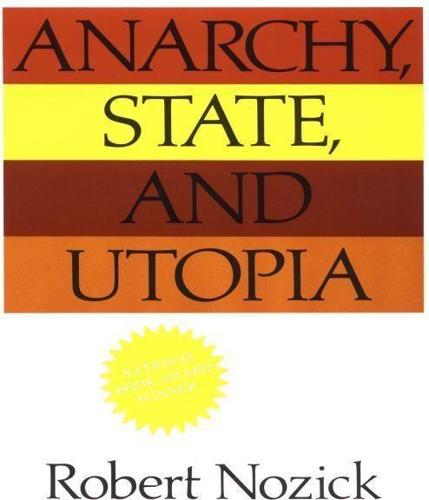
Anarchy State and Utopia
by
Robert Nozick
Published 15 Mar 1974
CHAPTER 3 Moral Constraints and the State THE MINIMAL STATE AND THE ULTRAMINIMAL STATE THE night-watchman state of classical liberal theory, limited to the functions of protecting all its citizens against violence, theft, and fraud, and to the enforcement of contracts, and so on, appears to be redistributive.1 We can imagine at least one social arrangement intermediate between the scheme of private protective associations and the night-watchman state. Since the night-watchman state is often called a minimal state, we shall call this other arrangement the ultraminimal state. An ultraminimal state maintains a monopoly over all use of force except that necessary in immediate self-defense, and so excludes private (or agency) retaliation for wrong and exaction of compensation; but it provides protection and enforcement services only to those who purchase its protection and enforcement policies.
…
An ultraminimal state maintains a monopoly over all use of force except that necessary in immediate self-defense, and so excludes private (or agency) retaliation for wrong and exaction of compensation; but it provides protection and enforcement services only to those who purchase its protection and enforcement policies. People who don’t buy a protection contract from the monopoly don’t get protected. The minimal (night-watchman) state is equivalent to the ultraminimal state conjoined with a (clearly redistributive) Friedmanesque voucher plan, financed from tax revenues.f Under this plan all people, or some (for example, those in need), are given tax-funded vouchers that can be used only for their purchase of a protection policy from the ultraminimal state. Since the night-watchman state appears redistributive to the extent that it compels some people to pay for the protection of others, its proponents must explain why this redistributive function of the state is unique.
…
Unless some private party donated sufficient funds to cover the costs of such protection (to pay for detectives, police to bring criminals into custody, courts, and prisons), or unless the state found some service it could charge for that would cover these costs, e one would expect that a state which offered protection so broadly would be redistributive. It would be a state in which some persons paid more so that others could be protected. And indeed the most minimal state seriously discussed by the mainstream of political theorists, the night-watchman state of classical liberal theory, appears to be redistributive in this fashion. Yet how can a protection agency, a business, charge some to provide its product to others? 16 (We ignore things like some partially paying for others because it is too costly for the agency to refine its classification of, and charges to, customers to mirror the costs of the services to them.)
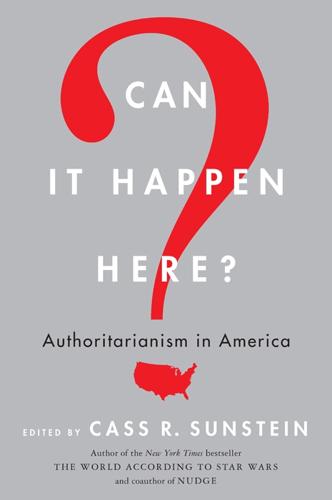
Can It Happen Here?: Authoritarianism in America
by
Cass R. Sunstein
Published 6 Mar 2018
No, I am not blaming classical liberalism for Nazism, but still it is easier to take over a smaller and simpler state than it is to commandeer one of today’s sprawling bureaucracies. I commonly hear arguments from classical liberals suggesting that a “night watchman state,” or some slightly expanded version thereof, provides government with greater efficacy and focus. If government is concentrating on its essential functions, and what it can do well, maybe it does a better job. Imagine for instance a government that doesn’t try so hard to regulate broccoli stems, but delivers on limiting crime and providing speedy and fair trials to the accused. Yet the greater focus of the night watchman state, for all its virtues, is part of the reason why it is easy to take over. There is a clearly defined center of power, a clearly defined set of lines of authority, and furthermore the main activity of the state is to enforce property rights through violence or the threat of violence.
…
I am suggesting that there is something to Russell’s portrait of why it is hard to take over an anarchistic society. But if we consider that actual anarchy is unlikely as an alternative (and probably also undesirable), what might be the next best thing? I am suggesting that rather than the night watchman state, a diverse, decentralized, and complex bureaucracy might be much harder to take over, precisely because it is more anarchistic in some key respects. It is also interesting to compare my perspective to the views of the Austrian economists Ludwig von Mises and Friedrich A. Hayek, and also the American economist Milton Friedman.
…
., 178, 179 Multiculturalism, 210–11, 241, 409 Murphy, Frank, 316 “Mushy middle,” 269–70 Muslim bans, 79, 235, 262, 319, 322, 328n, 369–70, 371–73 Muslim registry, 314 Mussolini, Benito, 15, 46–47, 233, 277 Napoléon Bonaparte, 284–85, 286, 298 Narcissistic rulers, 279–84 National Front, 190, 205, 209–10 Nationalism, 15–16, 243–46, 404–5, 418–20 National Security Act of 1947, 108 National Security Agency (NSA), 108, 109, 112, 122, 124 National Security Council (NSC), 108 Nativist intolerance, 240, 242–49, 264–66, 267, 268, 410–11, 418–20 Navalny, Alexei, 148 Nazi Germany, x, 38, 40, 45–48, 66, 75, 158, 167, 399 Netherlands, 177 Network effects, 344 New Deal, 78, 381–82 Newton, Isaac, 360 New York Times, 117–18, 283–84, 436 New Zealand, 52–53 NFIB v. Sebelius, 382–83 NFL (National Football League), 16, 138 “Night watchman state,” 38–40, 43 Nineteen Eighty-Four (Orwell), ix Nixon, Richard, 4, 6, 7, 78–79, 109 Non-Detention Act of 1971, 316–17 Normative threat, 179, 180, 181, 185, 186–87, 193–94, 196, 201–6, 215 North Carolina, 152–53 North Korea, viii Nudging (nudge theory), 342–43 Obama, Barack, 1, 5, 6, 7, 75, 122, 129n, 222, 323, 332, 404–5 probabilistic approach of, 351–52 Obamacare, 29–31, 345–46, 351, 382–83 Office of Government Ethics, 154–55 Oligarchy, 20, 21, 23–24, 26, 29–34 O’Malley, Edward, 85 “On ‘It Can’t Happen Here’” (Feldman), 157–74 Orbán, Viktor, 147, 151, 165, 408–10, 419 Orwell, George, ix Pagès, Jean-Pierre, 291 Paine, Thomas, 331–32 Pakistan, 107 Palmer, A.
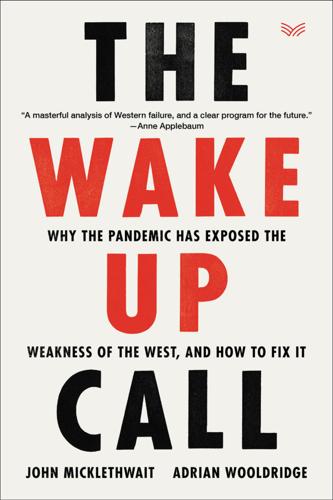
The Wake-Up Call: Why the Pandemic Has Exposed the Weakness of the West, and How to Fix It
by
John Micklethwait
and
Adrian Wooldridge
Published 1 Sep 2020
John Stuart Mill’s focus was on ideas, particularly on liberty, the title of his most famous work, though he did spend three years as Liberal MP for Westminster in 1865–68, driving the Tories mad by describing them as “the stupid party.” He wanted to get rid of all barriers to self-fulfillment. He became associated with a minimal “night-watchman state” (he never used this expression, but it stuck), where the only justification for the state interfering in people’s lives was to prevent them from doing harm to others. In Mill’s view, economic and intellectual freedom was not just good for an individual; you also got a richer, fairer society if opinions were constantly tested—established orthodoxies and frail egos be damned.
…
He even broke with the standard reformers’ line that we must make government more efficient on the grounds that a better government would only improve Leviathan’s ability to rob the people. Like Hayek, Friedman hated being called a conservative. He saw himself squarely in the tradition of John Stuart Mill and Jeremy Bentham. In 1964, his vision of a night-watchman state was embraced by the Republican presidential nominee: “I have little interest in streamlining government or in making it more efficient, for I mean to reduce its size,” Barry Goldwater told the electorate. “I do not undertake to promote welfare, for I propose to extend freedom.” Running against Lyndon Johnson and the Great Society, Goldwater won just six states.
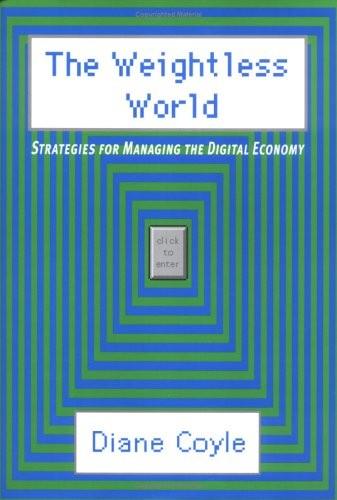
The Weightless World: Strategies for Managing the Digital Economy
by
Diane Coyle
Published 29 Oct 1998
As the last chapter argued, the dematerialisation of value means the economically efficient scale of government has changed, and it has become increasingly clear that national governments cannot manage the national economy as effectively as they have in the past. Even so, the failure of mainstream politicians to acknowledge that the world is a different place has handed those in favour of free markets and a minimal, night watchman state easy victories. For there is no question that in an increasingly weightless world, with a dramatic increase in the scale and scope of uncertainty, markets play an essential role. There is no possibility of corporatism, of management from the centre of the national economy. Free markets send crucial price and demand signals, and in effect devolve decision-making to the most dispersed level possible.
…
She must operate mainly in the social economy, where she ‘trades’ services like child care and helping people who have similar businesses to hers. The nanny state we still have makes life extraordinarily difficult for people like Jennie because it was designed for a fixed world of male, full-time work, which has been consigned to the dustbin of history. The rules cannot accommodate the new, flexible pattern. The night watchman state would respond by shrinking the tax and benefit net to the point where it did little to influence people’s choices. The teacher state might, on the other hand, The Weightless World 214 encourage every individual, regardless of their marital status, sex or source of income, to save for their pension by offering tax relief on incomes paid out of their personal retirement plan in old age.
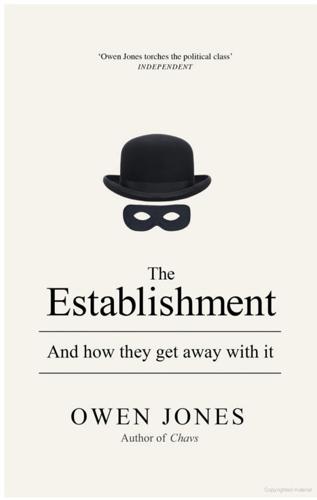
The Establishment: And How They Get Away With It
by
Owen Jones
Published 3 Sep 2014
‘I think that smaller-scale governments, more freedom for business to exist and to operate – that is the right kind of direction,’ he explains to me in the IoD’s grand headquarters on London’s Pall Mall, ‘and I don’t doubt that there needs to be a residual government functioning of maintaining law and order, enforcing contracts, but to me that’s what government ought to be about.’ It is reminiscent of the ‘night-watchman state’, a term coined by the nineteenth-century German socialist Ferdinand Lassalle to describe the vision of his own laissez-faire contemporaries: a state with the most limited of functions. Despite shades of moderation and radicalism, the British Establishment’s governing ideology is consistent.
…
According to the National Audit Office, a whopping 50 per cent of the public sector’s £187 billion spending on goods and services is now spent on contracting out, highlighting just how far the privatization of the state has gone.18 For the free-market libertarian, the state should provide little other than internal and external defence. But neo-liberal dogma has gone far beyond even the so-called ‘night-watchman state’. Even the British bobby is up for sale. In 2012, Lincolnshire police signed a £200 million contract with G4S, leaving half its civilian force under the control of the company. Towards the end of 2013, Avon and Somerset Police put their custody suites and prisoner-transport services up to tender, with five companies, including G4S, competing to take them over.
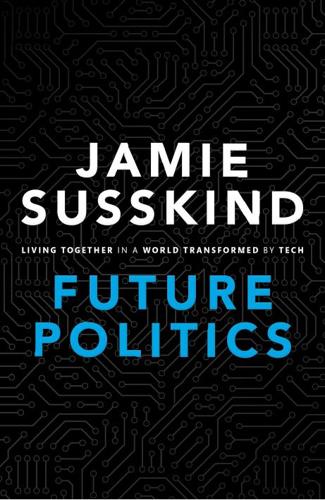
Future Politics: Living Together in a World Transformed by Tech
by
Jamie Susskind
Published 3 Sep 2018
One of the great political debates of the twentieth century concerned the extent and nature of state intervention in the market economy. At one extreme, some favoured a ‘command economy’ in which the state did most of the spending and determined what people earned, what was produced, and at what price. At the other end of the spectrum were those who supported a ‘night watchman state’ that did as little regulating and spending as possible. There are a range of options between these poles. OUP CORRECTED PROOF – FINAL, 28/05/18, SPi РЕЛИЗ ПОДГОТОВИЛА ГРУППА "What's News" VK.COM/WSNWS 266 FUTURE POLITICS Algorithmic Distribution What is the future of distributive justice?
…
P. 318 Morozov, Evgeny 15, 336, 369, 414, 431 motor insurance 267 movement, freedom of 192 MoveOn 221 Moxley, Lauren 410 Moynihan, Daniel 230 Mumford, Lewis 42, 153 Muoio, Danielle 383 Muse.com 48, 380 Mussolini, Benito 118 Nagel, Thomas 423 Nakamoto, Satoshi 45 names 130–1 nanotechnology 56 Nardi, Bonnie, A. 431 nationalism 273 National Security Agency (NSA) FASCIA 67 HAPPYFOOT 67 MUSCULAR 156 phone taps 125 terrorists, identification of 35, 132 Nelson, Eric 429 Nelson, Justin 434 neo-Nazism 235, 236 Netflix 147, 269 network effect 320–2 network neutrality 157–8 neuroelectronics 41 neuroprosthetics 51 NeuroSky 48 neutrality fallacy 288–92 news fake 150, 230, 233, 234 perception-control 146–7, 150, 151, 152, 229 shared values principle 353–4 Newton, Casey 377 Newton, Sir Isaac 78 New York 130 New York Times 392 OUP CORRECTED PROOF – FINAL, 28/05/18, SPi РЕЛИЗ ПОДГОТОВИЛА ГРУППА "What's News" VK.COM/WSNWS Index New Zealand 24, 244, 276 Ng, Jason Q. 399 Niblett, Anthony 109, 112, 393, 394 Nichols, John 400 Nicholson, Peter P. 389 Nietzsche, Friedrich 88 night watchman state 265 Nike Fuelbands 44 Nissenbaum, Helen 170, 402 Nobel, Alfred 20 Nobel prize for Chemistry 56 Norman, Donald A. 401 normative analysis 83–5 norms 274, 275 Novartis 51 Noveck, Beth Simone 220, 410, 416 Nozick, Robert 263–4, 313, 418, 426 nuclear power 14 NYC Mayor’s Office of Technology and Innovation 377 Obama, Barack 4, 95, 219–20, 230 Ober, Josiah 411 objective failures of recognition 272 objectivity, and the neutrality fallacy 292 Obodovski, Daniel 380 Occupy 150, 221 Octobot 55 Odysseus 165–6 Olson, Parmy 430 O’Malley, James 380 O’Neil, Cathy 418, 419, 421, 433 Ong, Walter 111, 393 Onlife Initiative 368 online groups 221 Oord, Aäron van den 371 open-source production 244, 333 open-source software 243–4 opportunity, equality of 260, 261, 263, 270, 294 oppression 273 Oracle 427 oral cultures 111–12 O’Reilly, Tim 391, 392, 393 Original Sin 349 507 Orwell, George 390, 415 intellectual honesty and balanced judgment, disappearance of 237–8 Nineteen Eighty-Four 12, 122, 151 political speech 81 ostracism 217 overtly unjust rules 283–4 Owlchemy Labs 319 Oxford English Dictionary 79 Oxford University 30 Paine, Thomas 167–8 Pakistan 50 Palfrey, John 380 Panopticon 126 Parfit, Derek 418 Parijs, Philippe van 306, 425, 426 Paro 55 participation and algorithms 268 Pascal, Blaise 40, 41 Pasquale, Frank 397, 399, 400, 404, 406, 419, 422, 423, 428, 432, 434 algorithms 194 Google 351 Pateman, Carol 410 patents 315, 316, 324, 332, 333 patriarchy 349 Pearson, Jordan 421 Penney, Jon 395 Penny, Timothy J. 412 perception-control 89, 123, 142–52 Deliberative Democracy 229 digital liberation 170 digital lifeworld 146–50 implications 150–2 justice in recognition 278 public and private power 154, 156–7, 160 separation of control 358–9 twentieth century 144–6 Pericles 214, 224, 253 Perry, Walter 397 Persia 19 personal property 324 person-specific pricing 269, 270 OUP CORRECTED PROOF – FINAL, 28/05/18, SPi РЕЛИЗ ПОДГОТОВИЛА ГРУППА "What's News" VK.COM/WSNWS 508 Index persuasion 142 pervasiveness of technology 43–4 Perzanowski, Aaron 325, 394, 429, 431 Peterson, Andrea 385 Pettit, Philip 167, 401 Philadelphia 130 Phillips, Anne 368 philosophical engineers 6–9, 294, 347 Piketty, Thomas 314, 327–8, 426–7, 430 PKK 236 PlanIt Valley, Portugal 50 Plato 389, 397, 409, 413, 432 democracy 212, 251 memory 136 philosophers 347 political theory 9 property 77 Ring of Gyges 232 Plaugic, Lizzie 414 Playstation VR 59 Pocock, J.
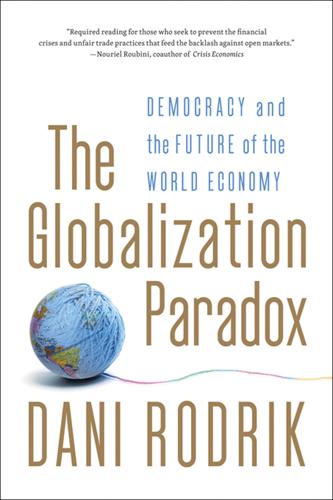
The Globalization Paradox: Democracy and the Future of the World Economy
by
Dani Rodrik
Published 23 Dec 2010
Thanks to its capacity for reinvention, capitalism has overcome its periodic crises and outlived its critics, from Karl Marx on. Looking at capitalism from the prism of the global economy, we have observed in this book how these transformations occur. Adam Smith’s idealized market society required little more than a “night-watchman state.” All that governments needed to do to ensure the division of labor was to enforce property rights, keep the peace, and collect a few taxes to pay for a limited range of public goods such as national defense. Through the early part of the twentieth century and the first wave of globalization, capitalism was governed by a narrow vision of the public institutions needed to uphold it.
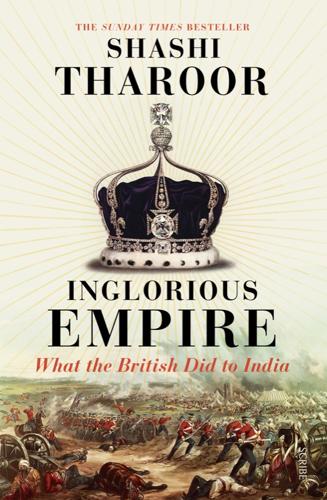
Inglorious Empire: What the British Did to India
by
Shashi Tharoor
Published 1 Feb 2018
The British, Ferguson wrote, combined commerce, conquest, and some ‘evangelical imperialism’ in an early form of globalization—or, in a particularly infelicitous word, ‘Anglobalization’—and in so doing Britain bequeathed to a large part of the world nine of its most distinctive and admirable features, the very ones that had made Britain great: the English language, English forms of land tenure, Scottish and English banking, the common law, Protestantism, team sports, the ‘night watchman’ state, representative assemblies, and the idea of liberty. The last of these, he tells us, is ‘the most distinctive feature of the Empire’ since ‘whenever the British were behaving despotically, there was always a liberal critique of that behaviour from within British society’. We shall return to the broader elements of Ferguson’s analysis (and that of other apologists for Empire like Lawrence James) in Chapter 7, but it is the claims to liberal democracy that detain us now.
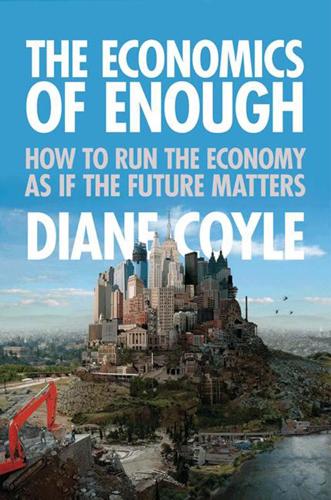
The Economics of Enough: How to Run the Economy as if the Future Matters
by
Diane Coyle
Published 21 Feb 2011
There is vigorous disagreement about all aspects of these basic functions of government, about how they should be structured, about matters of detail. But even the most ardent “free marketeer” would accept the need for a minimum set of basic government functions. It’s usually referred to as the “night watchman state.” Many people, most probably, believe that rather more than the night watchman minimum is needed. In fact, once you get away from the extreme positions, there is wide spectrum of views about what the role of government should be. All other economic institutions, including markets, exist within that context.
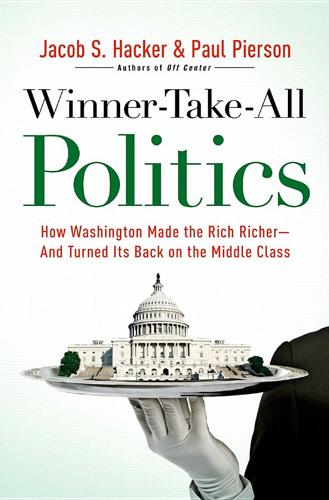
Winner-Take-All Politics: How Washington Made the Rich Richer-And Turned Its Back on the Middle Class
by
Paul Pierson
and
Jacob S. Hacker
Published 14 Sep 2010
As the great political economist Karl Polanyi famously argued in the 1940s, even the ostensibly freest markets require the extensive exercise of the coercive power of the state—to enforce contracts, to govern the formation of unions, to spell out the rights and obligations of corporations, to shape who has standing to bring legal actions, to define what constitutes an unacceptable conflict of interest, and on and on.19 The libertarian vision of a night-watchman state gently policing an unfettered free market is a philosophical conceit, not a description of reality. The intertwining of government and markets is nothing new. The frontier was settled because government granted land to the pioneers, killed, drove off, or rounded up Native Americans, created private monopolies to forge a nationwide transportation and industrial network, and linked the land settled with the world’s largest postal system.
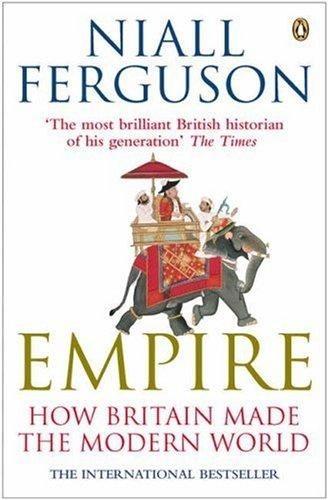
Empire: How Britain Made the Modern World
by
Niall Ferguson
Published 1 Jan 2002
When the British governed a country – even when they only influenced its government by flexing their military and financial muscles – there were certain distinctive features of their own society that they tended to disseminate. A list of the more important of these would run: The English language English forms of land tenure Scottish and English banking The Common Law Protestantism Team sports The limited or ‘night watchman’ state Representative assemblies The idea of liberty The last of these is perhaps the most important because it remains the most distinctive feature of the Empire, the thing that sets it apart from its continental European rivals. I do not mean to claim that all British imperialists were liberals: some were very far from it.
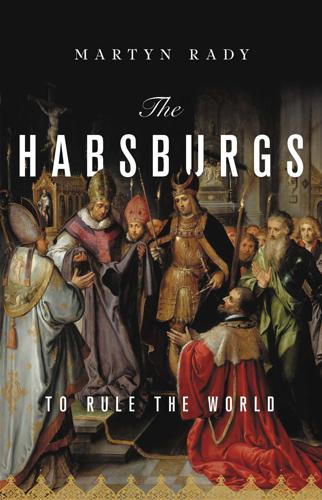
The Habsburgs: To Rule the World
by
Martyn Rady
Published 24 Aug 2020
As before, day-to-day power was exercised by the great lords and princes in their territories, which included the Habsburgs in their far-flung possessions. The Holy Roman Empire, which sat above princes and territories, fulfilled therefore only the most basic of functions, operating as a security organization of last resort in the manner of what nineteenth-century German theorists called a ‘night-watchman state.’ Maximilian was forever embracing initiatives which either were impossible or fizzled out through neglect. He regularly announced that he was going on crusade and in 1494 established a new chivalric order, the Knights of St George, to coordinate the recapture of Jerusalem, but in the end he never went.
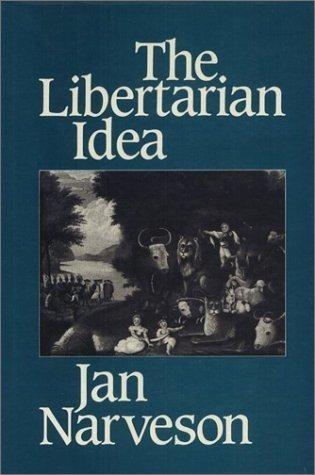
Libertarian Idea
by
Jan Narveson
Published 15 Dec 1988
But we have to realize that state action is only one solution among others, and the fact that state action is virtually certain to be inefficient, often extraordinarily inefficient, is surely an excellent reason for considering the alternatives. A Note on the “Minimal State” Nozick argued that the only justifiable function of the State was protection of individual rights, specifically from individual violations requiring protection by the use of force. This was the “Night-Watchman State” of nineteenth-century liberalism. Earlier, we saw that the character of his 246 argument for the Minimal State would not, if it works for its main intended purpose of refuting anarchism, suffice to show that no more than the minimal state is justified. If Nozick‟s argument is in fact a species of publicgoods argument, as seems plausible, then it is worth mentioning that such arguments simply can‟t be counted on to justify no more than the Minimal State.
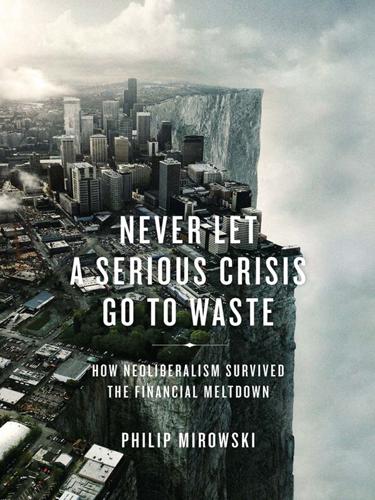
Never Let a Serious Crisis Go to Waste: How Neoliberalism Survived the Financial Meltdown
by
Philip Mirowski
Published 24 Jun 2013
They have to avert their eyes from Friedman quotes such as, “You can have a high degree of social freedom, and a high degree of economic freedom without any political freedom.”34 Strident demonization of some bugbear entity called “the government” is not at all the same as rejecting “The State” tout court.35 That is because mature neoliberalism is not at all enamored of the minimalist night-watchman state of the classical liberal tradition: its major distinguishing characteristic is instead a set of proposals and programs to infuse, take over, and transform the strong state, in order to impose the ideal form of society, which they conceive to be in pursuit of their very curious icon of pure freedom.
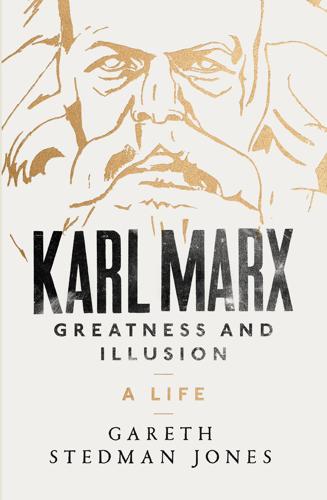
Karl Marx: Greatness and Illusion
by
Gareth Stedman Jones
Published 24 Aug 2016
That epoch ended in 1789, replaced by the supremacy of bourgeois property and the rule of capital. 1789 had been the revolution of the ‘Third Estate’. But 1848 was the revolution of the ‘Fourth Estate’. The ‘Third Estate’ had claimed to represent the claims of humanity, but in fact represented the political ambitions of the bourgeoisie, satisfied by free competition and ‘the night-watchman state’. Any claim to universality by the feudal nobility or the ‘Third Estate’ was contradicted by their sectional self-interest. The claims of the workers, on the other hand, were universal. Lassalle drew upon the Communist Manifesto (to Karl’s annoyance): workers, unlike the higher classes, had no particular privileges to defend.
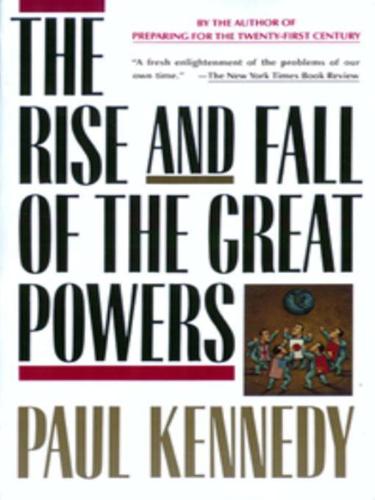
The Rise and Fall of the Great Powers: Economic Change and Military Conflict From 1500 to 2000
by
Paul Kennedy
Published 15 Jan 1989
It was, in the first place, immensely wealthy, both at home and abroad, though the British Treasury felt itself under heavy pressure in the two decades before 1914 as the newer technology more than doubled the price of an individual battleship. Moreover, the increases in the size of the electorate were leading to considerable “social” spending for the first time. Yet if the increases in payments for “guns and butter” looked alarming in absolute terms, this was because the night-watchman state had been taking so little of an individual’s income in taxes, and spending so little of the national income for government purposes. Even in 1913, total central and local government expenditure equaled only 12.3 percent of GNP. Thus, although Britain was one of the heaviest spenders on defense prior to 1914, it needed to allocate a smaller share of its national income to that purpose than any other Great Power in Europe;116 and if archimperialists tended to disparage Britain’s financial strength as opposed to industrial power, it did have the quite fantastic sum of around $19.5 billion invested overseas by then, equaling some 43 percent of the world’s foreign investments,117 which were an undoubted source of national wealth.